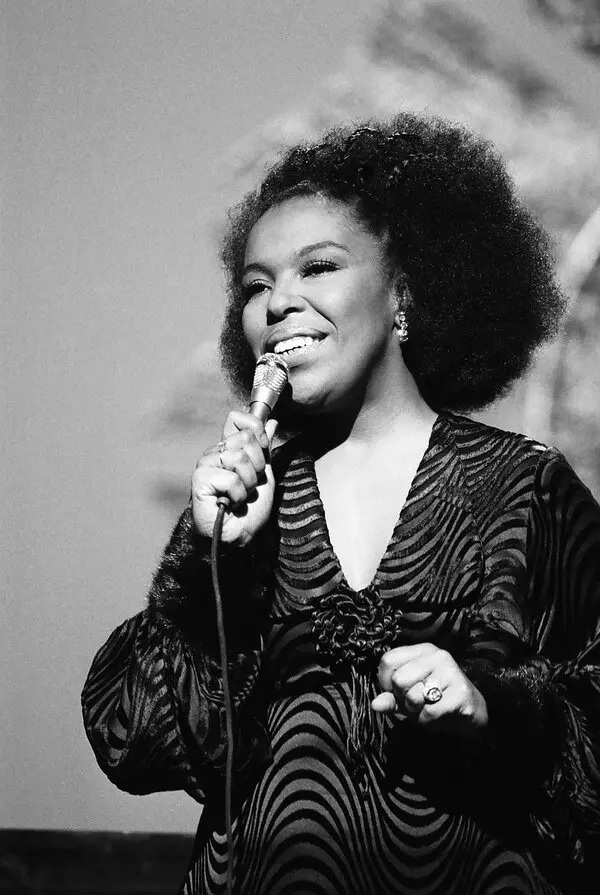Roberta Flack, the Grammy-winning legend behind “Killing Me Softly With His Song,” has died at 88.
Flack passed away Monday at her home, surrounded by family, her publicist Elaine Schock told CNN. No cause of death was revealed, though the iconic singer was diagnosed with amyotrophic lateral sclerosis (ALS) two and a half years ago.
“We are heartbroken that the glorious Roberta Flack passed away this morning, February 24, 2025,” Flack’s rep said in a statement. “She died peacefully surrounded by her family. Roberta broke boundaries and records. She was also a proud educator.”
A defining voice of the 1970s, Flack dominated the charts with three No. 1 singles in just two years: “Killing Me Softly With His Song,” “Feel Like Makin’ Love,” and “The First Time Ever I Saw Your Face.”
Rest in peace to Howard graduate, classically trained pianist, songwriter, singer, & the first artist to ever win a Grammy for Record of the Year in two consecutive years, Miss Roberta Flack. Her & her fellow songwriter Donny Hathaway are now reunited. pic.twitter.com/RsL2q35O9P
— Queer Latifah ???? (@TheAfrocentricI) February 24, 2025
In November 2022, Flack’s manager, Suzanne Koga, told People that the beloved singer-songwriter had been diagnosed with ALS and had been hospitalized for treatment.
According to a press release issued at the time, the progressive condition, often referred to as Lou Gehrig’s disease, “had made it impossible to sing and not easy to speak.”
“But it will take a lot more than ALS to silence this icon,” Koga added. “Miss Flack plans to stay active in her musical and creative pursuits. Her fortitude and joyful embrace of music that lifted her from modest circumstances to the international spotlight remain vibrant and inspired.”
Earlier that year, Flack opened up about her ambitious plans for the future, including an upcoming documentary about her life and career, a return to the stage, and the release of a children’s book inspired by her very first piano (which her father rescued from a junkyard).
“The pandemic has kept most of us off the stage for two years,” she said at the time. “I don’t know what the next two years will hold, but I hope to see my fans in person sometime soon.”
So sad to hear of Roberta Flack’s passing. One of the great soul singers of all time. Rest well, Ms. Flack. Your legacy lives on!!! pic.twitter.com/0llBa6VXID
— Jennifer Hudson (@IAMJHUD) February 24, 2025
Flack was born in Black Mountain, North Carolina, and raised in Arlington, Virginia. As the daughter of a church organist, she received classical musical training throughout her childhood, starting piano lessons at age 9.
By 15, Flack had earned a scholarship to Howard University in Washington, DC, where she graduated in 1958 with a bachelor’s degree in music education.
After teaching music for a while, she aspired to a career in classical music, but the industry in the 1960s wasn’t welcoming to Black women.”
“One of the hassles of being a Black female musician is that people are always backing you into a corner and telling you to sing soul,” she once told TIME.
“I’m a serious artist. I feel a kinship with people like Arthur Rubinstein and Glenn Gould. If I can’t play (20th-century orchestral composer Bela) Bartok when I want to play Bartok, then nothing else matters.”
A vocal artist encouraged Flack to pursue pop music instead, and after months spent singing at nightclubs, she landed her big break after being discovered by jazz musician Les McCann.
McCann helped secure her an audition with Atlantic Records, where, as she recalled, they listened to more than 40 of her songs over three hours.
“I was so anxious and so happy, and I still am,” she told Philadelphia Weekly decades later, “but it was all a brand-new experience, and I probably sang too many songs.”
Her debut record, “First Take,” followed soon after in 1969. It included her version of “The First Time Ever I Saw Your Face,” which was written by folk singer Ewan MacColl and helped catapult Flack to stardom after Clint Eastwood used it as the soundtrack for a love scene in his 1971 movie “Play Misty for Me.”
The following year, it topped the Billboard Hot 100 for six weeks and won Record of the Year at the 1973 Grammy Awards.

1973 also saw Flack release her record, “Killing Me Softly,” which also spent five weeks at the top of the Billboard chart and earned her another two Grammy awards in 1974 for Record of the Year and Best Pop Vocal Performance by a Female Artist.
Over her career, Flack won five Grammys from 14 nominations. She also released 15 albums, her final one being the Beatles recital “Let It Be Roberta,” which came out in 2012.
But while her most recognizable legacy will always be creating timeless love songs, it should be noted that Flack never shied away from complex issues
She addressed racial injustices on tracks like “Tryin’ Times,” highlighted social and economic inequality on “Compared to What,” and acknowledged LGBTQIA+ struggles in her rendition of “Ballad of the Sad Young Men.”
“I’m deeply saddened that many of the songs I recorded 50 years ago about civil rights, equal rights, poverty, hunger, and suffering in our society are still relevant in 2020,” she told AARP, reflecting on how her music remained connected to movements like Black Lives Matter and the ongoing fight against police brutality.
“The growing economic disparities, activism versus apathy, and the need for each of us to see it and address it—these are issues I’ve always sung about.”
But whether singing about protest, romance, or the classics, one thing is certain; Flack approached every song with deep personal meaning.
” Every single song I’ve recorded expressed something deep and personal to me,” she told NPR. “Each was my singular focus, whether in the studio or on stage.”
RIP Flack. You will be missed!








